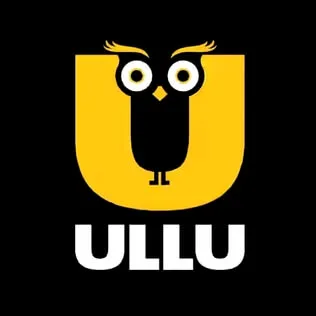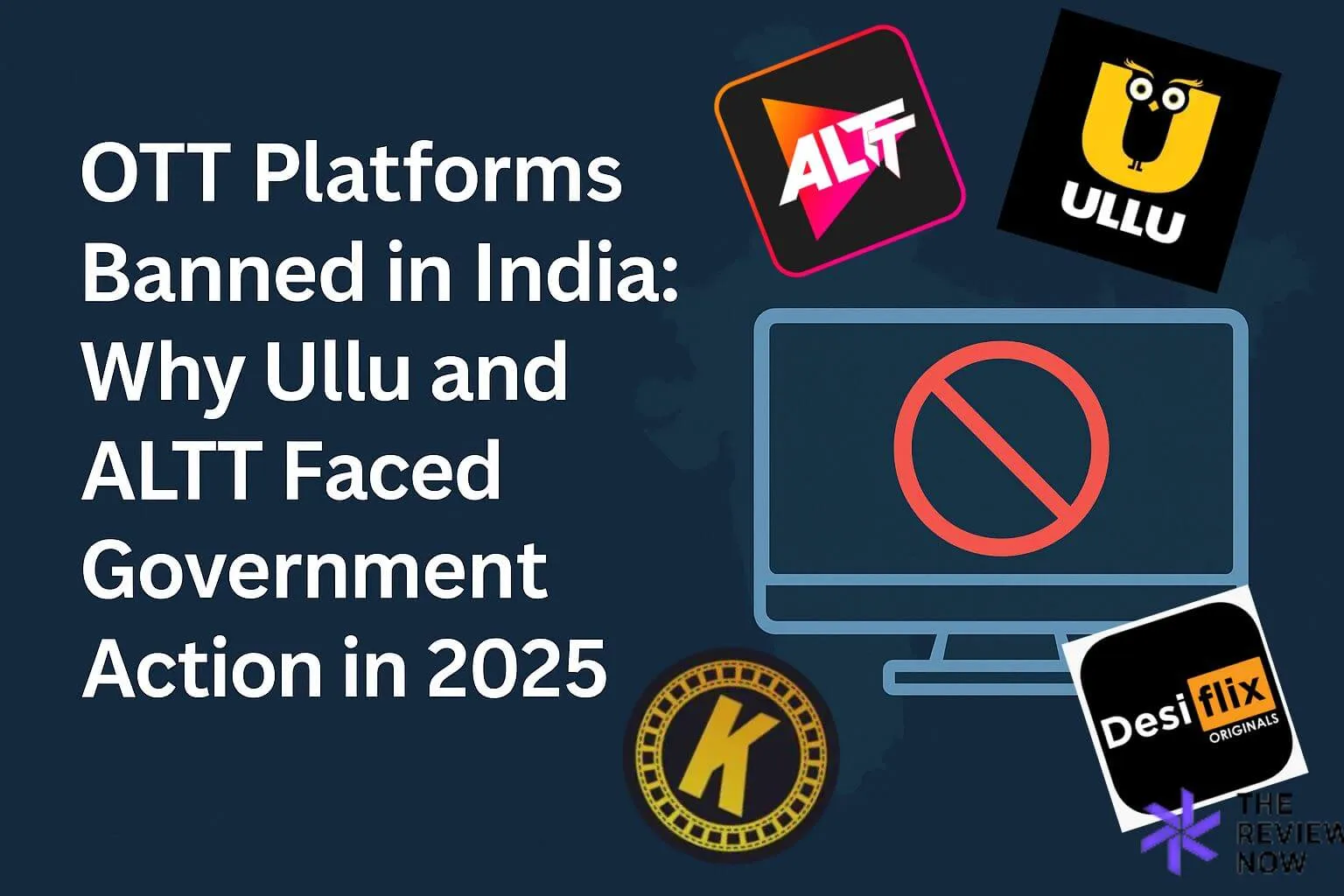OTT Platforms Banned in India: Why Ullu and ALTT Faced Government Action in 2025
OTT Platforms Banned in India: In this digital world where streaming content is just a tap away from you, OTT platforms have become our first choice for everything. But in 2025, India banned several OTT platforms in the country, including some controversial platforms like Ullu and ALTT.
The government’s sudden ban has created an uproar in the industry. Was it a long-overdue move to clean up digital content? Or an encroachment on creative freedom? The truth, as always, lies somewhere in between.
For years, platforms like Ullu and ALTT thrived on a certain kind of storytelling that was bold and unfiltered, and sometimes, critics say, bordering on vulgarity. But it wasn’t just limited to adult themes. Government officials have cited serious violations of laws, indecent portrayals of women, and a complete lack of narrative depth as the ultimate reasons.
So, what exactly was the reason for this ban? And what is its impact on India’s fast-growing OTT sector? Let us look at the facts, laws and controversies that gave rise to this digital controversy.
🚀 Avatar Fans, This Is For You!
James Cameron is back with a bang! Explore the stunning visuals, new characters, and deep story in the Avatar 3 Trailer Release.
🎥 Read Full ArticleWhat Triggered the OTT Platforms Banned in India 2025?
The year 2025 proved to be a turning point for India’s digital media space. While viewers like you were getting comfortable with bold and unconventional stories, regulators were becoming concerned about the uncontrolled rise of pornographic and explicit content, especially on platforms like Ullu and ALTT.
But this was not an overnight decision on these OTT platforms. This action on OTT platforms was a result of growing public outrage, multiple legal complaints and several warnings, which were allegedly being ignored by these OTT platforms.
The Ministry of Information and Broadcasting of the Government of India, along with several social welfare organizations, was keeping an eye on these OTT platforms which were not only violating Indian law but also basic ethical and cultural standards. According to the officials, many platforms like Ullu had pushed the creativity boundaries of their content too far.
These OTT platforms had normalized sexually explicit content for the masses without any story, context or social value. At the same time, civil society groups began raising concerns about the indecent portrayal of women and the potential harmful impact such content could have on minors who had unrestricted access to it.
The final straw came when a growing number of viewers, influencers and parents tagged government bodies on social media, demanding action. Trending hashtags such as #BanUllu, #CleanOTTIndia and #ProtectMinorsOnline gained momentum, forcing the government to respond to the matter.
Yesterday’s important press conference was addressed by our founder, Shri @udaymahurkar Ji.
— Save Culture Save Bharat (@scsb_f) August 1, 2025
The government’s ban on 25 OTT platforms, including ALTBalaji and ULLU, is just the beginning of cleansing India’s digital space. Our mission remains firm and unwavering.
It is to make… pic.twitter.com/CYSM1jHrfP
Timeline of Events That Led to the Ban
- January 2025: Several complaints were lodged with the ministry regarding pornographic content on OTT platforms like Ullu and ALTT.
- February 2025: Legal notices were reportedly sent to these OTT platforms under IT Rules 2021.
- March–April 2025: Online public protests and women’s rights groups have also joined in demanding a ban on these OTT platforms.
- June 2025: These OTT platforms have been officially removed from Google Play Store and iOS App Store in India.
- July 2025: The formal ban on these Indian OTT platforms has been announced with explanations citing legal violations and moral degradation.
Did Ullu and ALTT Cross the Line? A Content Analysis
OTT platforms like Ullu have made a name for themselves in the Indian streaming space with their adult content. But over time, the line between bold and vulgar started to blur.
Many of their shows had sexually explicit scenes, vulgar dialogues, and paper-thin stories that only served to peddle provocative content. What critics and government officials singled out for these OTT platforms was not just boldness but also the lack of meaningful stories and a disturbing trend of objectifying women.
Though adult content per se is not illegal in India, what landed these platforms in legal trouble was the frequent disregard for content guidelines and the lack of content classification or viewer discretion mechanisms. These shows were easily accessible to minors, and many did not comply with the age-rating norms under the IT Rules 2021.

How Many OTT Platforms Are Banned in India in 2025?
In 2025, the government intensified its crackdown on several OTT platforms for violating laws. The main reasons for this include the promotion of pornographic content, indecent portrayal of women in the content, and lack of age restrictions or content warnings.
Platforms that were not complying with the Information Technology Rules 2021 and continued to stream pornographic or sexually explicit content without proper classification were targeted and banned. Although Ullu and ALTT made the most headlines, they were not alone, more than 20 lesser-known OTT apps also faced bans in this action.
These platforms were found guilty of streaming content violating sections of the IT Act 2000, the Indian Justice Code 2023 and the Indecent Representation of Women Act, 1986 and all have been banned.
List of 18 OTT Platforms Banned in India (2025)
- ALTT
- ULLU
- Big Shots App
- Desiflix
- Boomex
- Navarasa Lite
- Gulab App
- Kangan App
- Hitprime
- Feneo
- Adda TV
- HotX VIP
- Hulchul App
- MoodX
- NeonX VIP
- Fugi
- Mojflix
- Triflicks
⚠️ Note: Some of these apps were also removed from Google Play Store and iOS App Store in India prior to the formal ban.
OTT Laws You Probably Didn’t Know Exist in India
You might assume that OTT platforms in India can stream anything in the name of “freedom of expression” but that is far from the truth. India has a strong legal framework governing digital content, especially when it involves obscenity, morality, and public decency.
Here are some of the key laws that played a role in banning platforms like Ullu, ALTT, and others:

1. Information Technology Act, 2000
- Section 67: Prohibition on publishing or transmitting obscene material in electronic form.
- Section 67A: Specifically targets sexually explicit material, even if it is not outright obscene.
2. Bharatiya Nyaya Sanhita, 2023 (Replaced IPC)
- Section 294: Criminalises obscene acts or words in public places, now extended to digital spaces as well.
3. Indecent Representation of Women (Prohibition) Act, 1986
- Ban on visual or written content that objectifies or degrades women on any media, including OTT.
4. IT Rules 2021 (Digital Media Ethics Code)
- A three-tier content regulation system was introduced.
- Age classification, content warnings, and grievance redressal mechanisms were made mandatory for OTT platforms.
Quote: These laws aren’t new – but 2025 is the year the government decided to enforce them more strictly, particularly against platforms that were clearly overstepping the bounds.
Is India Shifting Toward Stricter Digital Control?
The ban on platforms like Ullu and ALT is not just limited to pornographic content, but it marks a major shift in India’s digital governance.
The IT Rules 2021 proved to be a major turning point in the ban on these OTT platforms. They introduced content classification, age limitation, and a three-tier complaint system. Initially, many platforms considered these rules optional. But with the recent bans, it is clear: compliance is no longer an option.
Critics argue that this could lead to over-censorship or suppression of creative freedom. But supporters say it is necessary, especially when the content has the power to influence millions of people, including minors and vulnerable audiences.
Comparing India’s Regulation With Other Countries
Globally, countries like the UK and UAE have strict OTT guidelines apart from India, while the US follows a more self-regulatory model. India’s evolving framework appears to stand in the middle.
This trend suggests that OTT platforms in India will have to strike a balance between bold content and responsibility going forward.
What This Ban Means for Indian Viewers and OTT Industry?
The ban on Ullu and other platforms has changed the OTT landscape in India. Viewers can now find less adult-focused content, especially on smaller platforms. Some are happy with this change, while some argue that it limits creative freedom.
For OTT creators, this is a warning. The message is clear. Follow content rules, or face removal. Platforms must now:
- Label content with proper age ratings
- Avoid explicit content without context or story
- Ensure they don’t violate Indian cultural or legal standards
Are Regional OTTs at Risk Too?
Yes, many regional apps that provide bold content are now being monitored. If they ignore the rules, they too may be banned in the near future.
Ullu and ALTT Ban FAQs – What You Need to Know?
Why was Ullu banned in India?
Due to pornographic content, violation of IT laws, and indecent portrayal of women.
Which OTT platforms were banned recently?
ALTT, Ullu, Big Shots, BoomX, NeonX, and more than 20 other platforms.
Is it illegal to watch Ullu now?
If the platform is officially banned, access or streaming can be blocked by internet service providers.
Which laws did these platforms violate?
Sections 67 and 67A of the IT Act, and the Indecent Portrayal of Women Act.
Will all adult OTT content be banned?
No, only platforms that violate legal or ethical boundaries without proper regulation.
Can these platforms come back?
Yes, if they follow the IT Rules 2021 and government content guidelines.
Are regional OTTs also under scrutiny?
Yes, many regional bold-content platforms may soon face similar action.
Final Thoughts
The ban on Ullu, ALTT and other OTT platforms is not just a crackdown but a clear indication that digital content in India is entering a new era of accountability. Creative freedom matters, but so does responsibility, especially when it comes to protecting audiences, cultural values and legal standards.
For creators, it’s time to rethink content. For viewers, it’s a shift towards cleaner and more meaningful storytelling.
India is not banning OTTs – it’s simply asking them to do better.
✅ Follow Us for More Real, Unfiltered Insights
If you found this article helpful, stay connected with TheReviewNow for more updates on OTT trends, digital bans, and media laws in India.
📲 We’re your source for bold stories that matter.






Post Comment